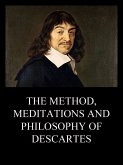The narrative follows the contributions of key thinkers such as John Locke, whose theories on empiricism and the mind's role in knowledge set the stage for future debates on human perception and the nature of reality. The rise of skepticism, represented by figures like David Hume, challenged the idea of certainty in human knowledge, questioning the foundations of causality and inductive reasoning.
At the heart of this philosophical evolution is Immanuel Kant, whose Critique of Pure Reason synthesized rationalism and empiricism, revolutionizing the understanding of how humans experience the world and the limitations of reason. Kant's transcendental idealism and his exploration of the boundaries between the known and the unknowable reshaped metaphysics, ethics, and the philosophy of science.
Through detailed analysis, The Rise of Modern Thought illuminates the progression from early modern skepticism and rationalism to the birth of a critical approach to knowledge and morality, offering readers an in-depth look at how the philosophical ideas of Descartes, Locke, Hume, and Kant still resonate in contemporary discussions about consciousness, perception, and the structure of reality. This book is an essential guide to understanding the evolution of modern philosophy and its lasting impact on the way we think about the mind, knowledge, and society.
Dieser Download kann aus rechtlichen Gründen nur mit Rechnungsadresse in A, B, CY, CZ, D, DK, EW, E, FIN, F, GR, H, IRL, I, LT, L, LR, M, NL, PL, P, R, S, SLO, SK ausgeliefert werden.









